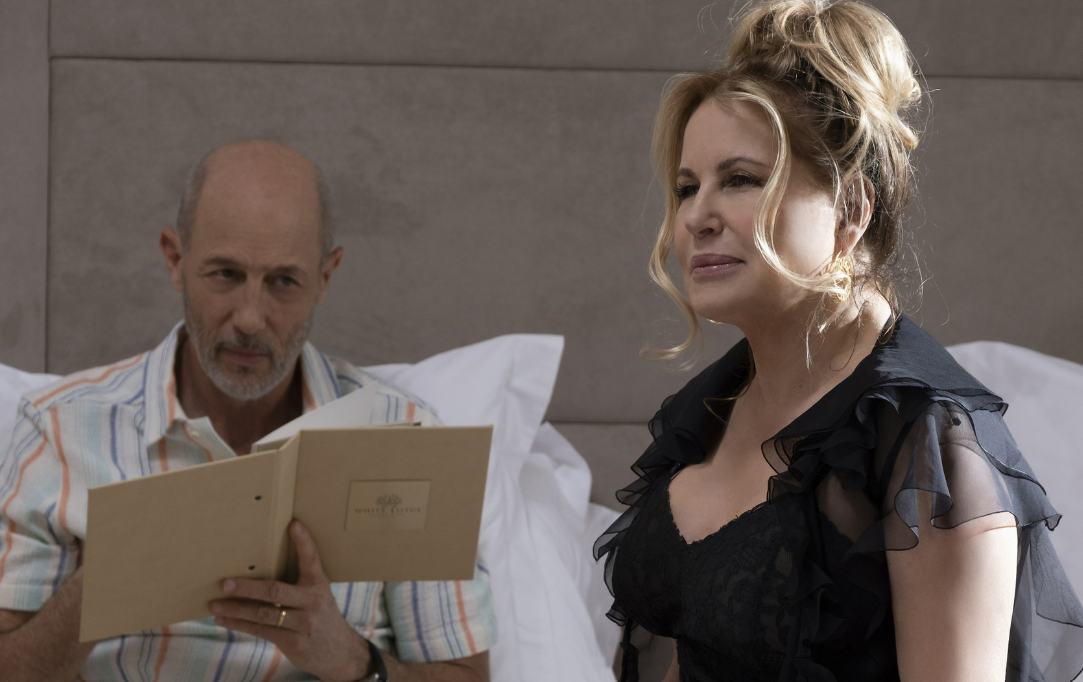
I loved the first season of The White Lotus.
It was the perfect pandemic show at the perfect time, allowing us to escape to an exotic locale and enjoy the quirks of some wonderfully written characters.
Season two just wrapped on HBO and I enjoyed it even more than the first one.
The murder mystery aspect of the show was tremendous but my finance brain couldn’t help but notice a number of money and behavioral psychology lessons from this season’s cast.
I know what you’re thinking: Ben, these are TV characters. Are you really going to do this?
You’re damn right I’m going to do this.
And creator Mike White even said in an interview all of these characters are based on people he knows or has interacted with in the entertainment industry. The show was satirical but nailed a lot of tried and true money truths.
Here are some of my favorites from The White Lotus resort in Sicily:
[WARNING: SPOILERS GALORE TO FOLLOW]
Keeping up with the Joneses can get you into trouble in a lot of different ways. My favorite dynamic on the show was the interplay between two couples traveling to Sicily together — Ethan & Harper and Cameron & Daphne.

Each married couple was unhappy in their own way.
Ethan and Cameron were old college roommates but Cameron hit it big first, making some dough as a finance bro.
Just before their getaway, Ethan and Harper earned untold millions selling his tech firm. They told themselves the money wasn’t going to change them but earning a big payday does change how other people perceive you.
Cameron told Ethan once you become fabulously wealthy, it’s OK to cheat on your wife:
Cameron: Now, that you’re a big shot, people must be slipping into your DMs left and right.
Ethan: No. What good would it do me if they were? I mean, I’m married.
Cameron: Dude, everyone cheats, E.
Ethan: No, they don’t. Come on! They do?
Cameron: Yeah!
And even though his big payday gave Ethan more money, he was in constant competition with his old roommate.
Newfound wealth led to jealousy, resentment, trust issues, cheating and more baggage than Tanya brought with her to the resort.
A lot of people assume keeping up with the Joneses is all about spending more money to keep up. That is part of it but it can also change your behavior in ways you might not appreciate.
More money might not change who you are but it changes who you think you should be and how other people think you should act.
And most of the time getting exactly what you thought you wanted in life (like a lot more money), doesn’t necessarily make you any happier. Sometimes it even makes you more miserable because you don’t have anything to strive for anymore.
Even rich people can be broke. Quentin shows up a few episodes into the season and comes in hot. He’s eccentric, fun, throws great parties and tells fantastic stories.
Quentin has a luxurious villa in Palermo and an ostentatious yacht.

The only problem is Quentin’s lifestyle of the rich and famous was too expensive for him. He was effectively broke because the upkeep of the villa and lifestyle cost so much money.
It reminds me of the second and third-generation Vanderbilt kids who blew through their father’s fortune on mansions, yachts and extravagant parties during the Gilded Age. The Vanderbilts went from the richest family in the country to more or less broke within three generations of profligate spending.
Once you become accustomed to a certain lifestyle, it’s difficult to go back to the way things used to be. This led Quentin down a dark path that didn’t end well for him, his friends or his mark, Tanya.
It doesn’t matter how rich you are if your standard of living outpaces your savings.
Rich people are more likely to be scammed out of their money. Poor Albie. His father and grandfather set a terrible example for how to have a healthy relationship. Both were philanderers.
Albie was always the nice guy who finished last when it came to the ladies. He just wanted to find someone genuine to spend his time with.
Enter Lucia, the local call girl:

Despite her profession, it seemed like Lucia actually liked him. Albie talked his father into giving him €50,000 to help Lucia out of a bind that she concocted to make it look like she was in danger from an angry pimp.
Alas, it was all a con.
His father Dominic even tried to warn him when he asked, “How are you gonna make it in life if you’re this big a mark?”
Albie claimed he wasn’t a mark but when you have a lot of money you become a mark whether you admit it or not.
The same was true of Tanya and her hundreds of millions of dollars. Tanya was needy, neurotic, trusting and the perfect mark for Greg, Quentin and crew.

Ethan also became a target once he came into money as Cameron couldn’t wait to hit him up to become one of his wealth management clients.
One would assume naive people without a lot of money would be the ones who get duped but the opposite is true. It’s typically people with more money and more knowledge about finance who get taken.
In a study on persuasion, researchers gave a financial literacy test to a group of people who were victims of financial fraud and another group who had not been conned. Surprisingly, the people who had been scammed out of their money earned much higher scores, on average, than the non-victims.
It was the most successful and sophisticated of investors who were taken the most.
Why?
People with money have a target on their backs and just enough overconfidence to get them into trouble.
Money can buy comfort but not happiness. One of my favorite characters on the show wasn’t a person, it was a place. The scenery in this show was breathtaking:

Every shot of the resort, the mountains, the countryside and the sea made me want to visit Sicily.
And the most ironic theme of the show was despite being in this beautiful place most people could only dream of going, all of these rich visitors were unhappy.
They could buy the comfort of a five-star resort but not contentment in their lives.
Relationships matter more than money. Obviously, not all rich people are unhappy. But it takes more than money to bring you joy in life.
Most studies show relationships have a positive impact on satisfaction, lifespan and your general outlook on life.
This is why I loved Lucia and Mia as the final shot in the finale walking down the plaza arm-in-arm:

Sure, they both got what they wanted — Lucia some money and Mia a singing gig.
But they got what they wanted together as friends. They didn’t backstab one other. They worked as a team. They supported each other.
It’s your relationships that matter more than money.
Michael and I discussed the season finale of The White Lotus and much more on this week’s Animal Spirits video:
Subscribe to The Compound so you never miss an episode.
Further Reading:
Who Wants to be a Billionaire?
Now here’s what I’ve been reading lately:
- Investment lessons from the World Cup (Morningstar)
- The gift of time (Dollars & Data)
- Everything gets taxed (A Teachable Moment)
- High fidelity imitation should be avoided (Rob Henderson)
- Mike White on the White Lotus finale (The Ringer)
